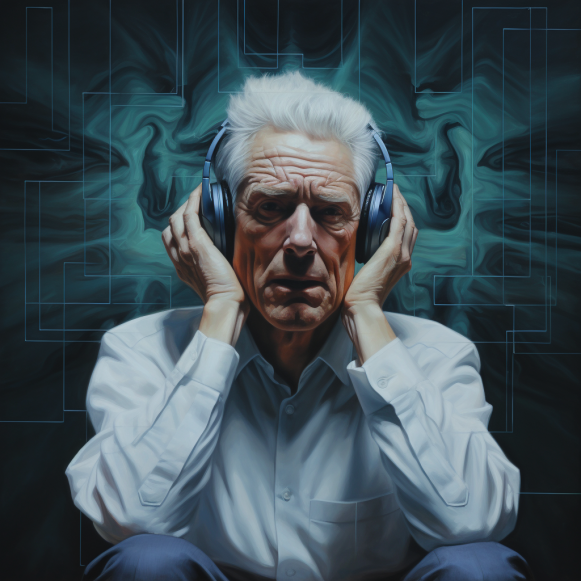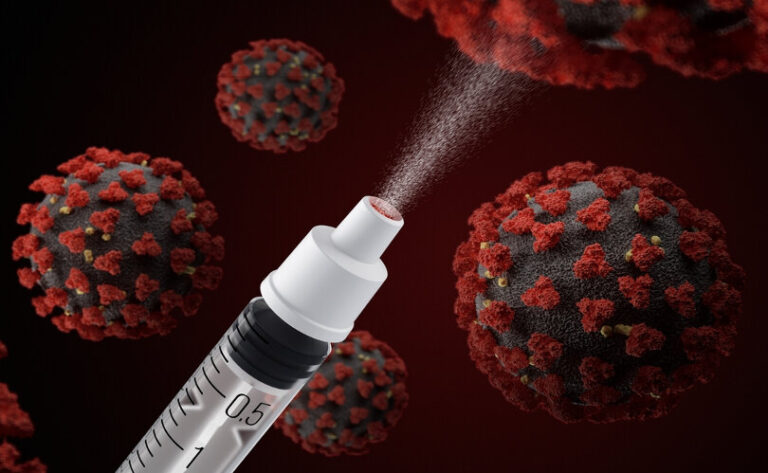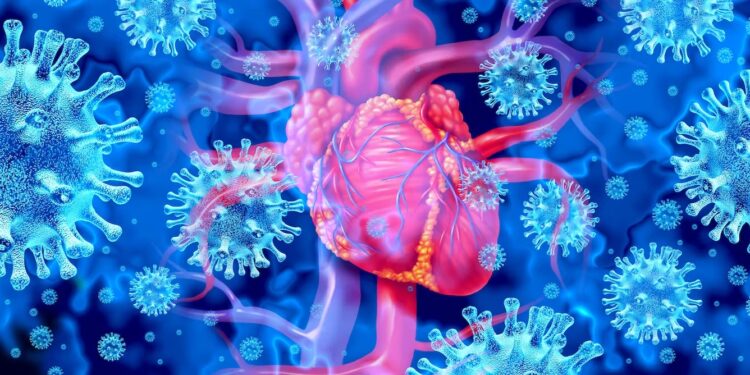Tinnitus: A Common Incurable COVID-19 Vaccine Adverse Event, Doctors Share Ways to Help

In this series, we look at some of the lesser-known but common adverse events that are popping up in the research literature and doctors’ offices, as well as how to deal with them and reduce the risks.
Previously, Republican state Rep. Mike Belcher of New Hampshire has been suffering from ocular migraines for nearly two years. In April 2021, he received his first Pfizer COVID-19 mRNA immunization, and things haven’t been the same since.
“I can’t keep doing this forever.” “I’m going to lose my mind,” Mary worried.
Regardless of her thoughts, the dull ringing in her ears persisted like an unanswerable alarm clock, mowing down her concentration.
In the summer of 2021, Mary’s tinnitus began an hour after she received her first Pfizer COVID-19 dose. She contacted the pharmacy where she was vaccinated right away, and they informed her that tinnitus was not a side effect of the COVID-19 vaccine.
Nonetheless, a Google search revealed that many people were discussing this condition in forums. The condition left some people severely disabled. A close physician relative advised Mary to start steroid therapy right away to treat her tinnitus, but her symptoms did not improve.
“I complained about it so much in the beginning,” Mary, who declined to give her last name, told The Epoch Times over the phone.
“I sobbed. “I had a nervous breakdown.”
Apart from the grim reality that her tinnitus would most likely be permanent, Mary was concerned about receiving her second primary dose in order to be fully vaccinated. She was concerned that the additional dose would aggravate her condition, and she was also concerned that she would be forced to take it.
Despite her distress, Mary found it difficult to discuss her concerns with her doctors, friends, and family.
“I felt comfortable telling people I had tinnitus, but I was afraid to tell them it began an hour after the vaccine.” “I didn’t want people to think I was anti-vaxxer,” she explained.
“But it’s my own experience, and the fact that I was afraid to say that is really sad.”
Tinnitus Caused by COVID-19 Vaccines?
Tinnitus is characterized by the presence of ringing sounds in the absence of sound. Recent research suggests that tinnitus is primarily neurological, though how and why it occurs remains unknown.
It is commonly associated with factors such as old age, exposure to loud sounds, nutritional deficiencies, autoimmune diseases, infections, and ear diseases.
Tinnitus symptoms include hearing loss and hyperacusis, in which sounds in the environment appear excessively loud or unbearable.
After the second and third doses of the COVID-19 vaccine, Mary Kelley, a nurse, developed hearing loss and then tinnitus. She had been vaccinated as part of the first wave of health care workers and had completed her second primary dose by January 2021.
Kelley had trouble hearing people at various times over the next few months. “Mary, you are deaf!” her coworkers and family teased her.
When boosters became mandatory, Kelley took the third dose in February 2022, and within hours, she experienced tinnitus that sounded like fire alarms in her right ear.
Kelley claimed that she was able to block out the tinnitus in her mind, claiming that hearing loss has a greater impact on her work than the tinnitus. However, some people find the noise to be extremely debilitating, causing them to lose concentration and sleep.
Tinnitus has been linked to COVID-19 mRNA vaccines, but it is unclear whether the link is causal or coincidental. According to exclusive Epoch Times reporting, the Centers for Disease Control and Prevention (CDC) in the United States has already identified tinnitus as a safety signal among hundreds of safety signals following mRNA vaccination.
A study published in the journal Laryngoscope examined nearly 2.6 million people using electronic health record data and discovered that 0.038 percent of people who had never been diagnosed with tinnitus before would develop it after receiving a single COVID-19 mRNA vaccine dose. Other vaccines for influenza and DTaP, as well as the pneumococcal vaccine, had a higher risk of tinnitus when compared to the first dose of the COVID-19 vaccines.
COVID-19 infections have also been linked to tinnitus, with one study finding that more than 20% of people develop tinnitus.
Shaowen Bao, a tinnitus researcher and associate professor of neuroscience and physiology at the University of Arizona, told ABC15 that post-vaccine tinnitus may be related to inflammation caused by the immune response triggered by the mRNA vaccines. Other mechanisms, however, may also be at work.
Vaccines cause autoimmune reactions by forcing healthy cells to produce viral proteins, which causes the immune system to attack these cells.
Tinnitus has been linked to autoimmune diseases that cause nerve damage, such as Alzheimer’s and Parkinson’s, as well as diseases that do not cause nerve damage, such as lupus and Crohn’s disease.
Similarly, the spike proteins in the COVID-19 vaccines have the potential to cause microclotting. Microclots can make blood viscous, slowing blood flow and reducing oxygen exchange in the blood, putting strain on the nerves and cells in the ears.
More than 17,000 cases of tinnitus related to COVID-19 vaccines have been reported on the Vaccine Adverse Event Reporting System (VAERS), accounting for more than 80% of all tinnitus reports in the VAERS system.
However, the true numbers could be even higher, not only because VAERS reports are significantly underreported, but also because tinnitus is underreported in the general population.
“Most definitely, postvaccine tinnitus has been underreported,” Jackie Clark, an audiologist and professor at the University of Texas, told The Epoch Times. Apart from vaccinations, “there are a lot of people who just say, ‘Oh, I thought that was just normal.'”
Some people are less aware of their bodies’ changes and would not even notice their tinnitus.
Clark noted that among her audiology students and patients at the Callier Center for Communication Disorders, she has seen fewer cases of tinnitus in people experiencing symptoms after vaccination than in people experiencing symptoms after COVID infection.
There is no guarantee of recovery from Tinnitus.
Clark cautions that there is no known cure for tinnitus and that many people are best served by learning to live with it comfortably.
Because tinnitus is most noticeable in quiet environments, some people have discovered that by playing soft music or introducing light noises into their environment, their mind is distracted from tinnitus. Hearing aids can help people with both hearing loss and tinnitus by amplifying background sounds and canceling out the tinnitus.
These suggestions have helped some people with mild tinnitus.
“Tinnitus has been the bane of medicine forever between otolaryngologists and neurologists,” said neurologist Dr. Robert Lowry, an expert in brain concussions. “Nobody ever knows what to do with it.”
Nonetheless, some research suggests that therapies that address underlying health issues may also help with tinnitus.
Some studies found that treating B-vitamin deficiencies reduced the severity of tinnitus in some people. Tinnitus can be relieved with oxytocin nasal sprays, which provide immediate nerve stimulation. This therapy is not appropriate for pregnant women.
Noninvasive brain stimulation, which has been shown to improve tinnitus, is another treatment being investigated by neurologist Dr. Diane Counce. However, because it has not been approved by the US Food and Drug Administration for the treatment of tinnitus, insurance may not cover it.
Similarly, surgery and antidepressants have only provided marginal benefits.
Treatments are aimed at the underlying mechanisms.
Given that postvaccine tinnitus can be caused by a variety of factors, Counce examines the symptoms that accompany tinnitus to determine the underlying cause of the condition.
Tinnitus associated with shortness of breath and exercise intolerance, for example, may indicate that the individual’s oxygen levels are low due to microclotting. Aspirin, along with nattokinase and serrapeptase supplements, would thus be recommended for that patient’s treatment.
An intravenous infusion of antibodies may be prescribed for patients who show signs of autoimmunity, such as nerve damage.
Dr. Syed Haider, a board-certified internist, said he usually starts his patients on ivermectin. He recalled having a patient whose tinnitus was so severe that he considered suicide. His tinnitus vanished after Haider started him on ivermectin.
Haider has also developed his own supplement protocol, which he recommends for both long-term and postvaccine patients, and it includes a variety of natural herb extracts, vitamins, minerals, and other supplements. Each of these aids in the treatment of a variety of health issues, including tinnitus.
Some patients respond to the first supplement they try, according to Haider, while others try several supplements before finding the one that works best for them. Some only respond when given a high dose of the therapeutic.
Ganglion blocks, which are typically pain-blocking injections, have also resulted in the complete reversal of tinnitus in some patients, according to Haider. This could be because the therapy inhibits the sympathetic nervous system, allowing the body to rest and recover.
Nonetheless, Clark cautioned against treatment therapies that “promise” a definite cure, noting that behavioral modification therapies that involve a person simply becoming accustomed to tinnitus have the highest success rates.
Vaccinated Individuals ‘Suffering Alone’
Mary has since joined an online tinnitus support group for vaccine-injured people.
Mary was able to accept her vaccine injury and move on with her life after meeting others who were suffering for the same reason.
Mary expressed gratitude for her tinnitus being bearable after reading stories from others who are far more disabled by it.
She also belongs to another support group for long-term and vaccine-injured people.
While long-COVID patients are also suffering from their condition and a lack of research, Mary stated that their experiences are validated and acknowledged, whereas adverse events caused by vaccines may be dismissed as rare.
“The people suffering with vaccine injury, they’re suffering alone in a lot of cases,” she said. “Even if a vaccine adverse event is extremely rare, that does not mean we should dismiss it.” It still merits recognition, validation, research, support, and assistance.”
Next, three days after receiving the vaccine, former Pussycat Dolls member Jessica Sutta awoke with “the most excruciating muscle spasms” she had ever felt.





